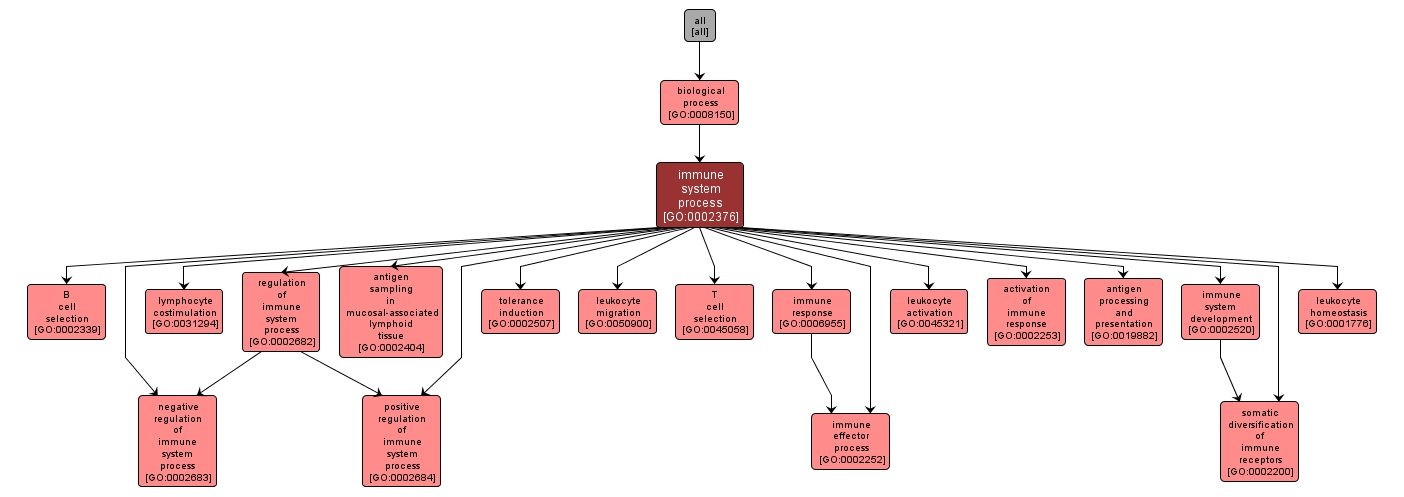GO TERM SUMMARY
|
| Name: |
immune system process |
| Acc: |
GO:0002376 |
| Aspect: |
Biological Process |
| Desc: |
Any process involved in the development or functioning of the immune system, an organismal system for calibrated responses to potential internal or invasive threats. |
|

|
INTERACTIVE GO GRAPH
|














